Italy v Spain (Wembley Stadium)
Today sees the clash between two heavyweights of the footballing world, with a combined nine World Cup and Euro Championships between them. Despite their combined footballing pedigree, one of them will be heading for the door marked EXIT at the end of the game. Ahead of the Semi-Final fixture, here’s a round-up of five icons of each team whose autobiographies – either already published or which would be worth publishing – would make for a good read.
Italy
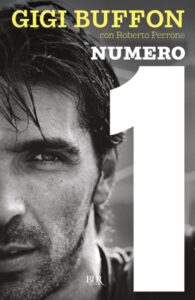 Gianluigi Buffon – The most capped player for The Azzurri with 176 appearances to his name – and the second-most capped European international – Buffon’s national career spanned some 21 years, in which time he won the World Cup in 2006 and the Golden Glove in the same year. He also has the most appearances for Italy as captain. Domestically, his senior career started in 1995 with Parma, before a 17-year spell, comprising 509 appearances for Juventus, followed by a short spell at PSG before he returned to The Old Lady in 2019. Buffon won a host of awards, just missing out on the Ballon d’Or in 2006, and holds a multitude of records, including most appearances in Serie A and most minutes played for Juventus – his 61,412 minutes for the club equating to some 1,023 hours or 42 days! His autobiography, Numero 1, was published in Italian in 2009, but surely it’s time for an update.
Gianluigi Buffon – The most capped player for The Azzurri with 176 appearances to his name – and the second-most capped European international – Buffon’s national career spanned some 21 years, in which time he won the World Cup in 2006 and the Golden Glove in the same year. He also has the most appearances for Italy as captain. Domestically, his senior career started in 1995 with Parma, before a 17-year spell, comprising 509 appearances for Juventus, followed by a short spell at PSG before he returned to The Old Lady in 2019. Buffon won a host of awards, just missing out on the Ballon d’Or in 2006, and holds a multitude of records, including most appearances in Serie A and most minutes played for Juventus – his 61,412 minutes for the club equating to some 1,023 hours or 42 days! His autobiography, Numero 1, was published in Italian in 2009, but surely it’s time for an update.
 Fabio Cannavaro – Italy has always been blessed with enviable defensive talent – Baresi, Maldini, Nesta, as well as the current crop of Bonucci, Chiellini, Spinazzola and Di Lorenzo, but it was Fabio Cannavaro who captained The Azzurri to their first World Cup triumph in almost a quarter of a century. The centre-back represented his nation across thirteen years, notching up some 136 caps, having already won consecutive European U21 championships in 1994 and 1996. He featured for Italy at four World Cups, two Euros, an Olympics and a Confederations Cup. His domestic career took in Napoli, Parma, Inter Milan, Juventus and Real Madrid and he won the 2006 Ballon d’Or. His book – La Nostra Bambina – was published in Italian in 2016.
Fabio Cannavaro – Italy has always been blessed with enviable defensive talent – Baresi, Maldini, Nesta, as well as the current crop of Bonucci, Chiellini, Spinazzola and Di Lorenzo, but it was Fabio Cannavaro who captained The Azzurri to their first World Cup triumph in almost a quarter of a century. The centre-back represented his nation across thirteen years, notching up some 136 caps, having already won consecutive European U21 championships in 1994 and 1996. He featured for Italy at four World Cups, two Euros, an Olympics and a Confederations Cup. His domestic career took in Napoli, Parma, Inter Milan, Juventus and Real Madrid and he won the 2006 Ballon d’Or. His book – La Nostra Bambina – was published in Italian in 2016.
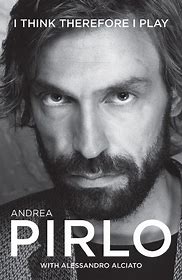 Andrea Pirlo – Few players enter the football psyche quite like midfield maestro Andrea Pirlo. Starting out at Brescia, his career took him to three of Italian football’s biggest hitters, in Inter Milan, AC Milan and Juventus, where he did the clean sweep of Serie A, Coppa Italia, Supercoppa Italia, Champions League, Super Cup and Club World Cup. His national career saw him appear at every age range from U15 through to the senior team, for which he made 116 appearances and scored 13 goals and was intrinsic to the 2006 World Cup triumph. He was man of the match in the World Cup Final and finished as the top assist maker in the tournament. His book, I Think, Therefore I Play, was published in 2014.
Andrea Pirlo – Few players enter the football psyche quite like midfield maestro Andrea Pirlo. Starting out at Brescia, his career took him to three of Italian football’s biggest hitters, in Inter Milan, AC Milan and Juventus, where he did the clean sweep of Serie A, Coppa Italia, Supercoppa Italia, Champions League, Super Cup and Club World Cup. His national career saw him appear at every age range from U15 through to the senior team, for which he made 116 appearances and scored 13 goals and was intrinsic to the 2006 World Cup triumph. He was man of the match in the World Cup Final and finished as the top assist maker in the tournament. His book, I Think, Therefore I Play, was published in 2014.
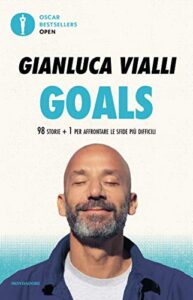 Gianluca Vialli – The Premier League has welcomed over 70 Italian players since its inception in 1992, including the likes of Dino Baggio, Massimo Maccarone and Fabrizio Ravenelli, but amongst the greatest imports is one Gianluca Vialli, who called Chelsea his home for three years, making 58 appearances and scoring 21 goals. Prior to his move to England, Vialli had represented Cremonese, Sampdoria and Juventus and is the only forward to have won the three main European competitions. He made 59 appearances for The Azzurri across seven years and scored 16 goals, and although there are perhaps more prolific and significant Italian strikers in the likes of Rossi, Baggio et al, Vialli’s health struggles in recent times make his book Goals – published in May – an important read. A previous autobiography, The Italian Job, is also available, whilst La Bella Stagione by Vialli and Roberto Mancini was published in Italian earlier this year.
Gianluca Vialli – The Premier League has welcomed over 70 Italian players since its inception in 1992, including the likes of Dino Baggio, Massimo Maccarone and Fabrizio Ravenelli, but amongst the greatest imports is one Gianluca Vialli, who called Chelsea his home for three years, making 58 appearances and scoring 21 goals. Prior to his move to England, Vialli had represented Cremonese, Sampdoria and Juventus and is the only forward to have won the three main European competitions. He made 59 appearances for The Azzurri across seven years and scored 16 goals, and although there are perhaps more prolific and significant Italian strikers in the likes of Rossi, Baggio et al, Vialli’s health struggles in recent times make his book Goals – published in May – an important read. A previous autobiography, The Italian Job, is also available, whilst La Bella Stagione by Vialli and Roberto Mancini was published in Italian earlier this year.
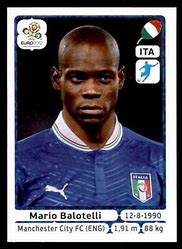 Mario Balotelli – Mario Balotelli may not be the first name that comes to mind when you think of Italian strikers, but let’s be honest, if there is any footballer with a story to tell it’s surely this former Man City maverick. His stats for Italy are fairly impressive, with some 14 goals in only 36 appearances, in which time he featured at Euro 2012, the 2013 Confederations Cup and the 2014 World Cup and, interestingly, he is both the Azzurri’s joint top scorer in the European Championship and Confederations Cup. In his domestic career, Balotelli has played in three of Europe’s biggest leagues, as well as representing two of English football’s biggest hitters in Manchester City and Liverpool. Whilst an autobiography is yet to be published, if you’re looking for something to fill the void, Francesco Totti is not a bad replacement and his book, Gladiator, is slated for publication in English in September.
Mario Balotelli – Mario Balotelli may not be the first name that comes to mind when you think of Italian strikers, but let’s be honest, if there is any footballer with a story to tell it’s surely this former Man City maverick. His stats for Italy are fairly impressive, with some 14 goals in only 36 appearances, in which time he featured at Euro 2012, the 2013 Confederations Cup and the 2014 World Cup and, interestingly, he is both the Azzurri’s joint top scorer in the European Championship and Confederations Cup. In his domestic career, Balotelli has played in three of Europe’s biggest leagues, as well as representing two of English football’s biggest hitters in Manchester City and Liverpool. Whilst an autobiography is yet to be published, if you’re looking for something to fill the void, Francesco Totti is not a bad replacement and his book, Gladiator, is slated for publication in English in September.
Spain
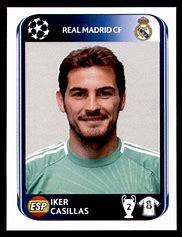 Iker Casillas – With 167 caps to his name across a 16-year stint, Iker Casillas is the second most capped player in Spain’s history and amongst the most iconic goalkeepers of a generation. Representing La Roja at U15 level all the way through to the senior team, he captained the side at the 2010 World Cup, where he led them to their first ever World Cup triumph, picking up the Yashin Award for best goalkeeper en route. He picked up two European Championship wins in 2008 and 2012, whilst at club level he won all major trophies in almost two decades at Real Madrid. With 1,119 appearances in his career, he is one of only some 32 players to have played over 1,000 times and has the record for the most clean sheets in the Champions League. No autobiography has yet been published but would be on the list for any football fans.
Iker Casillas – With 167 caps to his name across a 16-year stint, Iker Casillas is the second most capped player in Spain’s history and amongst the most iconic goalkeepers of a generation. Representing La Roja at U15 level all the way through to the senior team, he captained the side at the 2010 World Cup, where he led them to their first ever World Cup triumph, picking up the Yashin Award for best goalkeeper en route. He picked up two European Championship wins in 2008 and 2012, whilst at club level he won all major trophies in almost two decades at Real Madrid. With 1,119 appearances in his career, he is one of only some 32 players to have played over 1,000 times and has the record for the most clean sheets in the Champions League. No autobiography has yet been published but would be on the list for any football fans.
 Sergio Ramos – Despite being dropped from the Euro 2020 squad, Sergio Ramos remains the most capped Spanish player of all time, with 180 caps to his name, and 23 goals, and was the youngest Spanish player to reach 100 caps. Representing La Roja at four World Cups and three Euros, he has won one World Cup and two Euros trophies. Whilst his domestic career started at Sevilla, Ramos became a figurehead at Real Madrid, where he played some 469 games across a 16-year spell, winning five La Liga titles, two Copa del Reys, four Supercopa de Espana, four Champions Leagues, three Super Cups and four Club World Cups. Having been surprisingly let go from Madrid this summer, his future is yet to be determined, but perhaps a move to the Premier League could prove his swansong and add a nice chapter to a potential autobiography.
Sergio Ramos – Despite being dropped from the Euro 2020 squad, Sergio Ramos remains the most capped Spanish player of all time, with 180 caps to his name, and 23 goals, and was the youngest Spanish player to reach 100 caps. Representing La Roja at four World Cups and three Euros, he has won one World Cup and two Euros trophies. Whilst his domestic career started at Sevilla, Ramos became a figurehead at Real Madrid, where he played some 469 games across a 16-year spell, winning five La Liga titles, two Copa del Reys, four Supercopa de Espana, four Champions Leagues, three Super Cups and four Club World Cups. Having been surprisingly let go from Madrid this summer, his future is yet to be determined, but perhaps a move to the Premier League could prove his swansong and add a nice chapter to a potential autobiography.
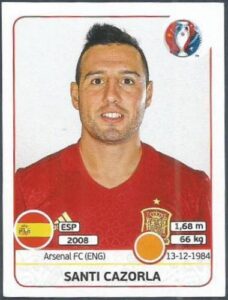 Santi Cazorla – It’s practically impossible to choose between the incredible midfielders that Spain have been endowed with in the last decade alone. Where do you start in separating the likes of Xavi, Fabregas, David Silva, Xabi Alonso, Juan Mata… But when it comes to personality to match their talent, Santi Cazorla is perhaps in a league of his own. Despite competing against these Spanish heavyweights, Cazorla achieved 81 caps for La Roja, scoring 15 times and was Spain’s Player of the Year in 2007. His domestic career took in Villareal, Recreativo Huelva and Malaga in Spain, but he made his name in the Premier League in a six-year spell at Arsenal, where he faced a career-threatening injury. Whilst Juan Mata is the only one of these midfield options to have an autobiography to his name (Suddenly a Footballer), Cazorla et al are surely each worthy of their own tomes.
Santi Cazorla – It’s practically impossible to choose between the incredible midfielders that Spain have been endowed with in the last decade alone. Where do you start in separating the likes of Xavi, Fabregas, David Silva, Xabi Alonso, Juan Mata… But when it comes to personality to match their talent, Santi Cazorla is perhaps in a league of his own. Despite competing against these Spanish heavyweights, Cazorla achieved 81 caps for La Roja, scoring 15 times and was Spain’s Player of the Year in 2007. His domestic career took in Villareal, Recreativo Huelva and Malaga in Spain, but he made his name in the Premier League in a six-year spell at Arsenal, where he faced a career-threatening injury. Whilst Juan Mata is the only one of these midfield options to have an autobiography to his name (Suddenly a Footballer), Cazorla et al are surely each worthy of their own tomes.
 Andres Iniesta – One man missing from that midfield list is none other than Andres Iniesta – a player who won La Liga’s Best Spanish player in 2009, was five times La Liga’s Best Midfielder, featured in nine consecutive FIFA FIFPro World11’s, six UEFA Teams of the Year, the 2010 FIFA World Cup Dream Team, won UEFA’s Best Player in Europe Award in 2012 and the Euro Player of the Tournament in the same year… you get the drift. With Spain, Iniesta won the World Cup and two Euros, being named man of the match in the 2010 World Cup Final and the Euro 2012 Final, and notched 131 caps for La Roja, scoring 13 goals across a 12-year spell. His domestic career was spent predominantly at Barcelona, where he made 442 appearances, and won 35 trophies, including two trebles, in 2009 and 2015. His autobiography, aptly named The Artist, was published in English in 2016.
Andres Iniesta – One man missing from that midfield list is none other than Andres Iniesta – a player who won La Liga’s Best Spanish player in 2009, was five times La Liga’s Best Midfielder, featured in nine consecutive FIFA FIFPro World11’s, six UEFA Teams of the Year, the 2010 FIFA World Cup Dream Team, won UEFA’s Best Player in Europe Award in 2012 and the Euro Player of the Tournament in the same year… you get the drift. With Spain, Iniesta won the World Cup and two Euros, being named man of the match in the 2010 World Cup Final and the Euro 2012 Final, and notched 131 caps for La Roja, scoring 13 goals across a 12-year spell. His domestic career was spent predominantly at Barcelona, where he made 442 appearances, and won 35 trophies, including two trebles, in 2009 and 2015. His autobiography, aptly named The Artist, was published in English in 2016.
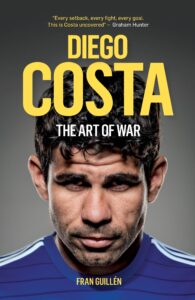 Diego Costa – While Raul and Fernando Torres may take the accolades as Spain’s top strikers in recent years, the mercurial Diego Costa is an autobiography dream. His international appearances may have been limited to only 24, but he managed 10 goals in that time. Meanwhile, his domestic career has seen him traverse Portugal, Spain and England, moving from Braga to Atletico Madrid to Valladolid, back to Atletico, before heading to Chelsea, and returning once more to Atleti. Despite his nomadic career, he’s racked up two La Liga triumphs, a Copa del Rey, Europa League success, three Super Cups, as well as two Premier League titles and a Football League Cup, and interest (and controversy) has followed him along the way. Fran Guillen’s book, Diego Costa: The Art of War, perhaps sums up the image of the man, but it would be fascinating to get a more personal insight into his character. And in terms of a head-to-head, it doesn’t get much better than him and Balotelli.
Diego Costa – While Raul and Fernando Torres may take the accolades as Spain’s top strikers in recent years, the mercurial Diego Costa is an autobiography dream. His international appearances may have been limited to only 24, but he managed 10 goals in that time. Meanwhile, his domestic career has seen him traverse Portugal, Spain and England, moving from Braga to Atletico Madrid to Valladolid, back to Atletico, before heading to Chelsea, and returning once more to Atleti. Despite his nomadic career, he’s racked up two La Liga triumphs, a Copa del Rey, Europa League success, three Super Cups, as well as two Premier League titles and a Football League Cup, and interest (and controversy) has followed him along the way. Fran Guillen’s book, Diego Costa: The Art of War, perhaps sums up the image of the man, but it would be fascinating to get a more personal insight into his character. And in terms of a head-to-head, it doesn’t get much better than him and Balotelli.
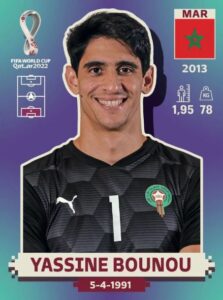 Morocco 0 (0) – (0) 0 Spain AET. Morocco win 3-0 on penalties (Stadium 974, Doha)
Morocco 0 (0) – (0) 0 Spain AET. Morocco win 3-0 on penalties (Stadium 974, Doha) Portugal 6 (2) – (0) 1 Switzerland (Lusail Iconic Stadium, Lusail)
Portugal 6 (2) – (0) 1 Switzerland (Lusail Iconic Stadium, Lusail) Group F:
Group F: Group E:
Group E: Yesterday started with two shocks results, had a shock start in game three, with the last of the day seeing two former World Cup winners play out a draw.
Yesterday started with two shocks results, had a shock start in game three, with the last of the day seeing two former World Cup winners play out a draw.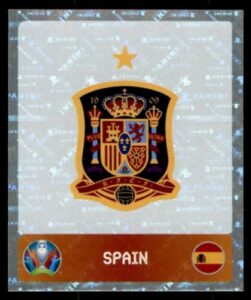 Spain: It was a case of so near, yet so far for a Spanish team, which, in all honesty, played their usual neat and tidy game in this tournament, but never looked completely convincing. Whilst their obvious issue was a lack of a clinical, decisive finisher, with Morata, Oyarzabal and Moreno all struggling to fill the berth, their World Cup victory in 2010 was predicated on the false 9, but La Roja came unstuck this time, despite impressive performances from 18-year-old Pedri and 23-year-old Dani Olmo, who will surely be integral to the Spanish side moving forward. Somewhat surprisingly, Spain are currently the highest goal-scorers at the tournament, with 13, to Denmark and Italy’s 12, and England’s 10, in large part to a five-goal demolition of Slovakia in the group stage and a 5-3 thriller against Croatia in the round of 16. So there is no doubt they can score goals and when everything clicks, they are still a hugely impressive and dangerous team, but, unfortunately, too many times in this tournament, it just didn’t click, including in their opening 0-0 clash with Sweden and a 1-1 draw with Poland in the next match. At times, they seemed to be crying out for something different, and with Adama Traore on their bench, a sum total of 13 minutes across six matches seemed bewildering. The Semi-Final against Italy looked to be the perfect set-up for a player who has tormented defenders in the Premier League against two centre-backs with a combined age of 70 and a majority of players who won’t have faced the tricky winger regularly, but Traore was brought off the subs bench to enter the affray only to return there without stepping foot on the pitch. Of course, one will never know whether he would have made a difference, but it all seemed a bit too safe and samey from Luis Enrique. With only three of the starting eleven for the match against Italy in their thirties, there is still time for this side to push on for next year’s World Cup.
Spain: It was a case of so near, yet so far for a Spanish team, which, in all honesty, played their usual neat and tidy game in this tournament, but never looked completely convincing. Whilst their obvious issue was a lack of a clinical, decisive finisher, with Morata, Oyarzabal and Moreno all struggling to fill the berth, their World Cup victory in 2010 was predicated on the false 9, but La Roja came unstuck this time, despite impressive performances from 18-year-old Pedri and 23-year-old Dani Olmo, who will surely be integral to the Spanish side moving forward. Somewhat surprisingly, Spain are currently the highest goal-scorers at the tournament, with 13, to Denmark and Italy’s 12, and England’s 10, in large part to a five-goal demolition of Slovakia in the group stage and a 5-3 thriller against Croatia in the round of 16. So there is no doubt they can score goals and when everything clicks, they are still a hugely impressive and dangerous team, but, unfortunately, too many times in this tournament, it just didn’t click, including in their opening 0-0 clash with Sweden and a 1-1 draw with Poland in the next match. At times, they seemed to be crying out for something different, and with Adama Traore on their bench, a sum total of 13 minutes across six matches seemed bewildering. The Semi-Final against Italy looked to be the perfect set-up for a player who has tormented defenders in the Premier League against two centre-backs with a combined age of 70 and a majority of players who won’t have faced the tricky winger regularly, but Traore was brought off the subs bench to enter the affray only to return there without stepping foot on the pitch. Of course, one will never know whether he would have made a difference, but it all seemed a bit too safe and samey from Luis Enrique. With only three of the starting eleven for the match against Italy in their thirties, there is still time for this side to push on for next year’s World Cup. Denmark: If the Danes had been playing anyone else but the Three Lions, I think it could be safely assumed that we’d all have liked to see them in the Final. Theirs has been the most challenging tournament imaginable, with the events of the very first match inevitably casting a shadow over all that followed. Other teams would have most likely crumbled, and it did seem in the conclusion of that first game against Finland as if the Danes would struggle to overcome what they had witnessed, losing 1-0 in a game in which the result was largely insignificant. Despite rallying against Belgium, an impressive Kevin de Bruyne display led to the Danes’ second defeat in two and threatened to end their tournament prematurely. Bottom of the group with no points heading into the final game against Russia, Denmark had it all to do, but if there is anything this team have proved from that first match is that they rally in adversity. And in that decisive match, Denmark didn’t just rally, they conquered, with an impressive 4-1 thrashing. Having progressed out of the group stage against all odds, Denmark looked galvanised in their matches against Wales and the Czech Republic, with 21-year-old Mikkel Damsgaard growing into the tournament, alongside Kasper Dolberg and Joakim Maehle. From the brink, people began asking whether Denmark could repeat their triumphs of 1992 and it was a team that itself was obviously growing in belief. They made the Semi-Final a tricky affair for England but eventually bowed out after 120 minutes with their heads held high. Their journey was much more about football, and in everything that they did, they made a nation and a footballing community hugely proud and gained themselves a legion of fans for the way responded not only in their darkest of moments but in all they achieved thereafter. Whilst the hope would have been to win the tournament for Eriksen, themselves and their country, in many ways Denmark won so much more, and in Simon Kjaer they have the standout captain of the Euros.
Denmark: If the Danes had been playing anyone else but the Three Lions, I think it could be safely assumed that we’d all have liked to see them in the Final. Theirs has been the most challenging tournament imaginable, with the events of the very first match inevitably casting a shadow over all that followed. Other teams would have most likely crumbled, and it did seem in the conclusion of that first game against Finland as if the Danes would struggle to overcome what they had witnessed, losing 1-0 in a game in which the result was largely insignificant. Despite rallying against Belgium, an impressive Kevin de Bruyne display led to the Danes’ second defeat in two and threatened to end their tournament prematurely. Bottom of the group with no points heading into the final game against Russia, Denmark had it all to do, but if there is anything this team have proved from that first match is that they rally in adversity. And in that decisive match, Denmark didn’t just rally, they conquered, with an impressive 4-1 thrashing. Having progressed out of the group stage against all odds, Denmark looked galvanised in their matches against Wales and the Czech Republic, with 21-year-old Mikkel Damsgaard growing into the tournament, alongside Kasper Dolberg and Joakim Maehle. From the brink, people began asking whether Denmark could repeat their triumphs of 1992 and it was a team that itself was obviously growing in belief. They made the Semi-Final a tricky affair for England but eventually bowed out after 120 minutes with their heads held high. Their journey was much more about football, and in everything that they did, they made a nation and a footballing community hugely proud and gained themselves a legion of fans for the way responded not only in their darkest of moments but in all they achieved thereafter. Whilst the hope would have been to win the tournament for Eriksen, themselves and their country, in many ways Denmark won so much more, and in Simon Kjaer they have the standout captain of the Euros.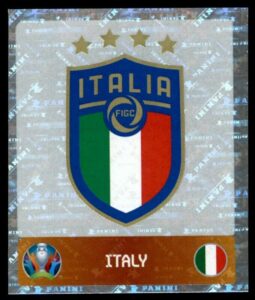 Italy: Whilst France, Belgium and Portugal all got the big build-up going into the tournament, Italy generally flew under the radar, until their first game against Turkey in which they clearly set out their stall with an emphatic 3-0 win. In truth, perhaps the Azzurri should have been on everyone’s radar, having come into the Euros with a hugely impressive winning streak and clean sheet run. Indeed, they continued to set records on both fronts in the group stage, with a second 3-0 triumph over Switzerland and 1-0 win, arguably with a second string XI, against Wales. Though Austria provided the first real test for Mancini’s men, it was clear that this Azzurri side were one with typical Italian grit and determination to go with the flair and skill. Many saw their Quarter-Final clash with Belgium as a potential banana skin, but they came through relatively untroubled, continuing to play an attractive and energetic style that perhaps has not always been characteristic of the Italians. Another difficult tie faced them in the Semi-Final against Spain, which was a much tighter affair, going all the way to penalties, but there is something about this group which gives them the edge. Indeed, it has felt throughout this tournament as if they have somehow been destined to make the Final and they have overcome every obstacle in their way through a combination of skill, talent, passion and tenacity. Their football has been amongst the most impressive on display, and as well as the team collective, there have been superb individual performances from the likes of Federico Chiesa and Manuel Locatelli, whilst Bonucci and Chiellini defy age in defence. However, Leonardo Spinazzola has arguably been the player of the entire tournament, putting in displays from left-back that are frankly mind-boggling. His injury against Belgium was a massive blow, not only for the Azzurri but for the tournament in general, but Italy’s strength in depth and squad quality has been another factor in their success. With an unbeaten run of 33 matches now – and a new record for the longest winning run in the Euros of 15 matches – Italy have set themselves as the ones to beat – but, as they say, all good things must come to an end.
Italy: Whilst France, Belgium and Portugal all got the big build-up going into the tournament, Italy generally flew under the radar, until their first game against Turkey in which they clearly set out their stall with an emphatic 3-0 win. In truth, perhaps the Azzurri should have been on everyone’s radar, having come into the Euros with a hugely impressive winning streak and clean sheet run. Indeed, they continued to set records on both fronts in the group stage, with a second 3-0 triumph over Switzerland and 1-0 win, arguably with a second string XI, against Wales. Though Austria provided the first real test for Mancini’s men, it was clear that this Azzurri side were one with typical Italian grit and determination to go with the flair and skill. Many saw their Quarter-Final clash with Belgium as a potential banana skin, but they came through relatively untroubled, continuing to play an attractive and energetic style that perhaps has not always been characteristic of the Italians. Another difficult tie faced them in the Semi-Final against Spain, which was a much tighter affair, going all the way to penalties, but there is something about this group which gives them the edge. Indeed, it has felt throughout this tournament as if they have somehow been destined to make the Final and they have overcome every obstacle in their way through a combination of skill, talent, passion and tenacity. Their football has been amongst the most impressive on display, and as well as the team collective, there have been superb individual performances from the likes of Federico Chiesa and Manuel Locatelli, whilst Bonucci and Chiellini defy age in defence. However, Leonardo Spinazzola has arguably been the player of the entire tournament, putting in displays from left-back that are frankly mind-boggling. His injury against Belgium was a massive blow, not only for the Azzurri but for the tournament in general, but Italy’s strength in depth and squad quality has been another factor in their success. With an unbeaten run of 33 matches now – and a new record for the longest winning run in the Euros of 15 matches – Italy have set themselves as the ones to beat – but, as they say, all good things must come to an end.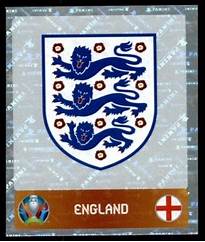 England: Oh, where to begin? Well, there’s only one place, surely, their progress to a first Final in 55 years. For the older generation, 1966 lives long in the memory, but for those born after that triumph, the Three Lions story has been one of varying degrees of hope and inevitable disappointment. Whilst there was the usual excitement and anticipation pre-tournament, few, I think, who would really have believed in England’s chances (I was one of the few), but three points in the opening game soon galvanised a nation, which had been kept out of football stadiums for some eighteen months. Of course, though, this wouldn’t be England without an anti-climax and that came in the next game against Scotland. A win against the Czech Republic secured England’s progress out of the group stage and a top-of-the-table finish and whilst hopes were high, a clash against Germany in the Round of 16 was viewed by many as the real test. A test that England came through with aplomb, but even better was to come three days later in Rome. England, away from Wembley for the first time, without their legion of fans and having had the extra hassle of travel, would be forgiven for being a bit sloppy, but no, this was the performance a nation needed to cement belief that this may just be England’s time. Ukraine may not have been the biggest scalp, but they still stood in England’s way, although not for very long, it has to be said, with Harry Kane’s fourth minute goal practically sealing the deal there and then. As Jurgen Klinsmann reflected, it had all been too perfect for England. Plain sailing is not something English football fans are familiar with, and this was the closest thing to plain sailing in recent history. We all knew it couldn’t last, but it was a question of how England would react to going behind, to adversity, to pressure, that would determine whether this team were just a carbon copy of those gone by or, indeed, the real thing. And Denmark posed that very question of the Three Lions, scoring first in their Semi-Final clash, with England conceding their first goal in over 600 minutes. With backs against the walls, an expectant home crowd and the ghost of 55 years, this would be the test of this team, and where England teams of tournaments past would have wilted, Kane and his band of brothers showed the resilience, determination and drive perhaps lacking in previous teams to cross that hallowed line into the Final. Italy will be yet a tougher test, but this victory – against a spirited Denmark side, coming from behind and with England far from their best – will surely add to the growing confidence and belief. Once again for me, despite the embarrassment of riches up front, it was the defence, so questioned pre-tournament, that were key. Pickford, who so impressed against Germany, had a nervier time of it last night, but hopefully he’s got that out of his system, while the four players in front of him – or make that six with Rice and Phillips’ dogged performances – rose to the occasion: Stones was largely unruffled, Maguire was imperious, Shaw tenacious and Walker just superhuman. Whilst there was controversy over the eventual penalty that separated the two teams, whether or not it was or wasn’t a penalty – and the same could be said of the Kane incident earlier in the match – England have been on the end of a fair few contentious decisions of their own and everyone knows you need some luck to win tournaments. There is more to this team than luck though, and Southgate’s men are doing a nation proud. With the Final at Wembley on Sunday, the trophy is in England waiting to be lifted – did someone say it’s coming home?
England: Oh, where to begin? Well, there’s only one place, surely, their progress to a first Final in 55 years. For the older generation, 1966 lives long in the memory, but for those born after that triumph, the Three Lions story has been one of varying degrees of hope and inevitable disappointment. Whilst there was the usual excitement and anticipation pre-tournament, few, I think, who would really have believed in England’s chances (I was one of the few), but three points in the opening game soon galvanised a nation, which had been kept out of football stadiums for some eighteen months. Of course, though, this wouldn’t be England without an anti-climax and that came in the next game against Scotland. A win against the Czech Republic secured England’s progress out of the group stage and a top-of-the-table finish and whilst hopes were high, a clash against Germany in the Round of 16 was viewed by many as the real test. A test that England came through with aplomb, but even better was to come three days later in Rome. England, away from Wembley for the first time, without their legion of fans and having had the extra hassle of travel, would be forgiven for being a bit sloppy, but no, this was the performance a nation needed to cement belief that this may just be England’s time. Ukraine may not have been the biggest scalp, but they still stood in England’s way, although not for very long, it has to be said, with Harry Kane’s fourth minute goal practically sealing the deal there and then. As Jurgen Klinsmann reflected, it had all been too perfect for England. Plain sailing is not something English football fans are familiar with, and this was the closest thing to plain sailing in recent history. We all knew it couldn’t last, but it was a question of how England would react to going behind, to adversity, to pressure, that would determine whether this team were just a carbon copy of those gone by or, indeed, the real thing. And Denmark posed that very question of the Three Lions, scoring first in their Semi-Final clash, with England conceding their first goal in over 600 minutes. With backs against the walls, an expectant home crowd and the ghost of 55 years, this would be the test of this team, and where England teams of tournaments past would have wilted, Kane and his band of brothers showed the resilience, determination and drive perhaps lacking in previous teams to cross that hallowed line into the Final. Italy will be yet a tougher test, but this victory – against a spirited Denmark side, coming from behind and with England far from their best – will surely add to the growing confidence and belief. Once again for me, despite the embarrassment of riches up front, it was the defence, so questioned pre-tournament, that were key. Pickford, who so impressed against Germany, had a nervier time of it last night, but hopefully he’s got that out of his system, while the four players in front of him – or make that six with Rice and Phillips’ dogged performances – rose to the occasion: Stones was largely unruffled, Maguire was imperious, Shaw tenacious and Walker just superhuman. Whilst there was controversy over the eventual penalty that separated the two teams, whether or not it was or wasn’t a penalty – and the same could be said of the Kane incident earlier in the match – England have been on the end of a fair few contentious decisions of their own and everyone knows you need some luck to win tournaments. There is more to this team than luck though, and Southgate’s men are doing a nation proud. With the Final at Wembley on Sunday, the trophy is in England waiting to be lifted – did someone say it’s coming home? Gianluigi Buffon – The most capped player for The Azzurri with 176 appearances to his name – and the second-most capped European international – Buffon’s national career spanned some 21 years, in which time he won the World Cup in 2006 and the Golden Glove in the same year. He also has the most appearances for Italy as captain. Domestically, his senior career started in 1995 with Parma, before a 17-year spell, comprising 509 appearances for Juventus, followed by a short spell at PSG before he returned to The Old Lady in 2019. Buffon won a host of awards, just missing out on the Ballon d’Or in 2006, and holds a multitude of records, including most appearances in Serie A and most minutes played for Juventus – his 61,412 minutes for the club equating to some 1,023 hours or 42 days! His autobiography, Numero 1, was published in Italian in 2009, but surely it’s time for an update.
Gianluigi Buffon – The most capped player for The Azzurri with 176 appearances to his name – and the second-most capped European international – Buffon’s national career spanned some 21 years, in which time he won the World Cup in 2006 and the Golden Glove in the same year. He also has the most appearances for Italy as captain. Domestically, his senior career started in 1995 with Parma, before a 17-year spell, comprising 509 appearances for Juventus, followed by a short spell at PSG before he returned to The Old Lady in 2019. Buffon won a host of awards, just missing out on the Ballon d’Or in 2006, and holds a multitude of records, including most appearances in Serie A and most minutes played for Juventus – his 61,412 minutes for the club equating to some 1,023 hours or 42 days! His autobiography, Numero 1, was published in Italian in 2009, but surely it’s time for an update. Fabio Cannavaro – Italy has always been blessed with enviable defensive talent – Baresi, Maldini, Nesta, as well as the current crop of Bonucci, Chiellini, Spinazzola and Di Lorenzo, but it was Fabio Cannavaro who captained The Azzurri to their first World Cup triumph in almost a quarter of a century. The centre-back represented his nation across thirteen years, notching up some 136 caps, having already won consecutive European U21 championships in 1994 and 1996. He featured for Italy at four World Cups, two Euros, an Olympics and a Confederations Cup. His domestic career took in Napoli, Parma, Inter Milan, Juventus and Real Madrid and he won the 2006 Ballon d’Or. His book – La Nostra Bambina – was published in Italian in 2016.
Fabio Cannavaro – Italy has always been blessed with enviable defensive talent – Baresi, Maldini, Nesta, as well as the current crop of Bonucci, Chiellini, Spinazzola and Di Lorenzo, but it was Fabio Cannavaro who captained The Azzurri to their first World Cup triumph in almost a quarter of a century. The centre-back represented his nation across thirteen years, notching up some 136 caps, having already won consecutive European U21 championships in 1994 and 1996. He featured for Italy at four World Cups, two Euros, an Olympics and a Confederations Cup. His domestic career took in Napoli, Parma, Inter Milan, Juventus and Real Madrid and he won the 2006 Ballon d’Or. His book – La Nostra Bambina – was published in Italian in 2016. Andrea Pirlo – Few players enter the football psyche quite like midfield maestro Andrea Pirlo. Starting out at Brescia, his career took him to three of Italian football’s biggest hitters, in Inter Milan, AC Milan and Juventus, where he did the clean sweep of Serie A, Coppa Italia, Supercoppa Italia, Champions League, Super Cup and Club World Cup. His national career saw him appear at every age range from U15 through to the senior team, for which he made 116 appearances and scored 13 goals and was intrinsic to the 2006 World Cup triumph. He was man of the match in the World Cup Final and finished as the top assist maker in the tournament. His book, I Think, Therefore I Play, was published in 2014.
Andrea Pirlo – Few players enter the football psyche quite like midfield maestro Andrea Pirlo. Starting out at Brescia, his career took him to three of Italian football’s biggest hitters, in Inter Milan, AC Milan and Juventus, where he did the clean sweep of Serie A, Coppa Italia, Supercoppa Italia, Champions League, Super Cup and Club World Cup. His national career saw him appear at every age range from U15 through to the senior team, for which he made 116 appearances and scored 13 goals and was intrinsic to the 2006 World Cup triumph. He was man of the match in the World Cup Final and finished as the top assist maker in the tournament. His book, I Think, Therefore I Play, was published in 2014. Gianluca Vialli – The Premier League has welcomed over 70 Italian players since its inception in 1992, including the likes of Dino Baggio, Massimo Maccarone and Fabrizio Ravenelli, but amongst the greatest imports is one Gianluca Vialli, who called Chelsea his home for three years, making 58 appearances and scoring 21 goals. Prior to his move to England, Vialli had represented Cremonese, Sampdoria and Juventus and is the only forward to have won the three main European competitions. He made 59 appearances for The Azzurri across seven years and scored 16 goals, and although there are perhaps more prolific and significant Italian strikers in the likes of Rossi, Baggio et al, Vialli’s health struggles in recent times make his book Goals – published in May – an important read. A previous autobiography, The Italian Job, is also available, whilst La Bella Stagione by Vialli and Roberto Mancini was published in Italian earlier this year.
Gianluca Vialli – The Premier League has welcomed over 70 Italian players since its inception in 1992, including the likes of Dino Baggio, Massimo Maccarone and Fabrizio Ravenelli, but amongst the greatest imports is one Gianluca Vialli, who called Chelsea his home for three years, making 58 appearances and scoring 21 goals. Prior to his move to England, Vialli had represented Cremonese, Sampdoria and Juventus and is the only forward to have won the three main European competitions. He made 59 appearances for The Azzurri across seven years and scored 16 goals, and although there are perhaps more prolific and significant Italian strikers in the likes of Rossi, Baggio et al, Vialli’s health struggles in recent times make his book Goals – published in May – an important read. A previous autobiography, The Italian Job, is also available, whilst La Bella Stagione by Vialli and Roberto Mancini was published in Italian earlier this year. Mario Balotelli – Mario Balotelli may not be the first name that comes to mind when you think of Italian strikers, but let’s be honest, if there is any footballer with a story to tell it’s surely this former Man City maverick. His stats for Italy are fairly impressive, with some 14 goals in only 36 appearances, in which time he featured at Euro 2012, the 2013 Confederations Cup and the 2014 World Cup and, interestingly, he is both the Azzurri’s joint top scorer in the European Championship and Confederations Cup. In his domestic career, Balotelli has played in three of Europe’s biggest leagues, as well as representing two of English football’s biggest hitters in Manchester City and Liverpool. Whilst an autobiography is yet to be published, if you’re looking for something to fill the void, Francesco Totti is not a bad replacement and his book, Gladiator, is slated for publication in English in September.
Mario Balotelli – Mario Balotelli may not be the first name that comes to mind when you think of Italian strikers, but let’s be honest, if there is any footballer with a story to tell it’s surely this former Man City maverick. His stats for Italy are fairly impressive, with some 14 goals in only 36 appearances, in which time he featured at Euro 2012, the 2013 Confederations Cup and the 2014 World Cup and, interestingly, he is both the Azzurri’s joint top scorer in the European Championship and Confederations Cup. In his domestic career, Balotelli has played in three of Europe’s biggest leagues, as well as representing two of English football’s biggest hitters in Manchester City and Liverpool. Whilst an autobiography is yet to be published, if you’re looking for something to fill the void, Francesco Totti is not a bad replacement and his book, Gladiator, is slated for publication in English in September. Iker Casillas – With 167 caps to his name across a 16-year stint, Iker Casillas is the second most capped player in Spain’s history and amongst the most iconic goalkeepers of a generation. Representing La Roja at U15 level all the way through to the senior team, he captained the side at the 2010 World Cup, where he led them to their first ever World Cup triumph, picking up the Yashin Award for best goalkeeper en route. He picked up two European Championship wins in 2008 and 2012, whilst at club level he won all major trophies in almost two decades at Real Madrid. With 1,119 appearances in his career, he is one of only some 32 players to have played over 1,000 times and has the record for the most clean sheets in the Champions League. No autobiography has yet been published but would be on the list for any football fans.
Iker Casillas – With 167 caps to his name across a 16-year stint, Iker Casillas is the second most capped player in Spain’s history and amongst the most iconic goalkeepers of a generation. Representing La Roja at U15 level all the way through to the senior team, he captained the side at the 2010 World Cup, where he led them to their first ever World Cup triumph, picking up the Yashin Award for best goalkeeper en route. He picked up two European Championship wins in 2008 and 2012, whilst at club level he won all major trophies in almost two decades at Real Madrid. With 1,119 appearances in his career, he is one of only some 32 players to have played over 1,000 times and has the record for the most clean sheets in the Champions League. No autobiography has yet been published but would be on the list for any football fans. Sergio Ramos – Despite being dropped from the Euro 2020 squad, Sergio Ramos remains the most capped Spanish player of all time, with 180 caps to his name, and 23 goals, and was the youngest Spanish player to reach 100 caps. Representing La Roja at four World Cups and three Euros, he has won one World Cup and two Euros trophies. Whilst his domestic career started at Sevilla, Ramos became a figurehead at Real Madrid, where he played some 469 games across a 16-year spell, winning five La Liga titles, two Copa del Reys, four Supercopa de Espana, four Champions Leagues, three Super Cups and four Club World Cups. Having been surprisingly let go from Madrid this summer, his future is yet to be determined, but perhaps a move to the Premier League could prove his swansong and add a nice chapter to a potential autobiography.
Sergio Ramos – Despite being dropped from the Euro 2020 squad, Sergio Ramos remains the most capped Spanish player of all time, with 180 caps to his name, and 23 goals, and was the youngest Spanish player to reach 100 caps. Representing La Roja at four World Cups and three Euros, he has won one World Cup and two Euros trophies. Whilst his domestic career started at Sevilla, Ramos became a figurehead at Real Madrid, where he played some 469 games across a 16-year spell, winning five La Liga titles, two Copa del Reys, four Supercopa de Espana, four Champions Leagues, three Super Cups and four Club World Cups. Having been surprisingly let go from Madrid this summer, his future is yet to be determined, but perhaps a move to the Premier League could prove his swansong and add a nice chapter to a potential autobiography. Santi Cazorla – It’s practically impossible to choose between the incredible midfielders that Spain have been endowed with in the last decade alone. Where do you start in separating the likes of Xavi, Fabregas, David Silva, Xabi Alonso, Juan Mata… But when it comes to personality to match their talent, Santi Cazorla is perhaps in a league of his own. Despite competing against these Spanish heavyweights, Cazorla achieved 81 caps for La Roja, scoring 15 times and was Spain’s Player of the Year in 2007. His domestic career took in Villareal, Recreativo Huelva and Malaga in Spain, but he made his name in the Premier League in a six-year spell at Arsenal, where he faced a career-threatening injury. Whilst Juan Mata is the only one of these midfield options to have an autobiography to his name (Suddenly a Footballer), Cazorla et al are surely each worthy of their own tomes.
Santi Cazorla – It’s practically impossible to choose between the incredible midfielders that Spain have been endowed with in the last decade alone. Where do you start in separating the likes of Xavi, Fabregas, David Silva, Xabi Alonso, Juan Mata… But when it comes to personality to match their talent, Santi Cazorla is perhaps in a league of his own. Despite competing against these Spanish heavyweights, Cazorla achieved 81 caps for La Roja, scoring 15 times and was Spain’s Player of the Year in 2007. His domestic career took in Villareal, Recreativo Huelva and Malaga in Spain, but he made his name in the Premier League in a six-year spell at Arsenal, where he faced a career-threatening injury. Whilst Juan Mata is the only one of these midfield options to have an autobiography to his name (Suddenly a Footballer), Cazorla et al are surely each worthy of their own tomes. Andres Iniesta – One man missing from that midfield list is none other than Andres Iniesta – a player who won La Liga’s Best Spanish player in 2009, was five times La Liga’s Best Midfielder, featured in nine consecutive FIFA FIFPro World11’s, six UEFA Teams of the Year, the 2010 FIFA World Cup Dream Team, won UEFA’s Best Player in Europe Award in 2012 and the Euro Player of the Tournament in the same year… you get the drift. With Spain, Iniesta won the World Cup and two Euros, being named man of the match in the 2010 World Cup Final and the Euro 2012 Final, and notched 131 caps for La Roja, scoring 13 goals across a 12-year spell. His domestic career was spent predominantly at Barcelona, where he made 442 appearances, and won 35 trophies, including two trebles, in 2009 and 2015. His autobiography, aptly named The Artist, was published in English in 2016.
Andres Iniesta – One man missing from that midfield list is none other than Andres Iniesta – a player who won La Liga’s Best Spanish player in 2009, was five times La Liga’s Best Midfielder, featured in nine consecutive FIFA FIFPro World11’s, six UEFA Teams of the Year, the 2010 FIFA World Cup Dream Team, won UEFA’s Best Player in Europe Award in 2012 and the Euro Player of the Tournament in the same year… you get the drift. With Spain, Iniesta won the World Cup and two Euros, being named man of the match in the 2010 World Cup Final and the Euro 2012 Final, and notched 131 caps for La Roja, scoring 13 goals across a 12-year spell. His domestic career was spent predominantly at Barcelona, where he made 442 appearances, and won 35 trophies, including two trebles, in 2009 and 2015. His autobiography, aptly named The Artist, was published in English in 2016. Diego Costa – While Raul and Fernando Torres may take the accolades as Spain’s top strikers in recent years, the mercurial Diego Costa is an autobiography dream. His international appearances may have been limited to only 24, but he managed 10 goals in that time. Meanwhile, his domestic career has seen him traverse Portugal, Spain and England, moving from Braga to Atletico Madrid to Valladolid, back to Atletico, before heading to Chelsea, and returning once more to Atleti. Despite his nomadic career, he’s racked up two La Liga triumphs, a Copa del Rey, Europa League success, three Super Cups, as well as two Premier League titles and a Football League Cup, and interest (and controversy) has followed him along the way. Fran Guillen’s book, Diego Costa: The Art of War, perhaps sums up the image of the man, but it would be fascinating to get a more personal insight into his character. And in terms of a head-to-head, it doesn’t get much better than him and Balotelli.
Diego Costa – While Raul and Fernando Torres may take the accolades as Spain’s top strikers in recent years, the mercurial Diego Costa is an autobiography dream. His international appearances may have been limited to only 24, but he managed 10 goals in that time. Meanwhile, his domestic career has seen him traverse Portugal, Spain and England, moving from Braga to Atletico Madrid to Valladolid, back to Atletico, before heading to Chelsea, and returning once more to Atleti. Despite his nomadic career, he’s racked up two La Liga triumphs, a Copa del Rey, Europa League success, three Super Cups, as well as two Premier League titles and a Football League Cup, and interest (and controversy) has followed him along the way. Fran Guillen’s book, Diego Costa: The Art of War, perhaps sums up the image of the man, but it would be fascinating to get a more personal insight into his character. And in terms of a head-to-head, it doesn’t get much better than him and Balotelli. No more Number Ones: The Round of 16 saw the departure of both the Euro reigning champions Portugal and the reigning World Champions, and pre-tournament favourites, France, and the Quarter-Finals delivered up yet another scalp, this time in the form of the number-one ranked nation – Belgium. In truth, it sometimes feels like the FIFA rankings can be taken with a pinch of salt, but nonetheless, there were definitely high hopes for the Red Devils both coming into the tournament and after an impressive unbeaten run in the first four matches, which saw them knock out Portugal. Their squad has been spoken of in recent years as a Golden Generation, with the likes of Courtois, Vertonghen, De Bruyne, Hazard and Lukaku – to name a fearsome five-a-side. But, as we all know too well, a Golden Generation doesn’t guarantee success, and there was no escaping the fact that this was Belgium’s crop. Going into their Quarter-Final with Italy, the Red Devils had enjoyed a fairly easy and uncomplicated journey thus far, but in a reinvigorated Azzurri, their biggest test was to come, and once more they came up short. Yes, there were some Italian theatrics and questionable antics, but, in truth, Belgium never really looked like a team who were up to the challenge of their counterparts. A 2-1 defeat was enough to see them bow out of yet another promising tournament having failed to live up to their golden billing.
No more Number Ones: The Round of 16 saw the departure of both the Euro reigning champions Portugal and the reigning World Champions, and pre-tournament favourites, France, and the Quarter-Finals delivered up yet another scalp, this time in the form of the number-one ranked nation – Belgium. In truth, it sometimes feels like the FIFA rankings can be taken with a pinch of salt, but nonetheless, there were definitely high hopes for the Red Devils both coming into the tournament and after an impressive unbeaten run in the first four matches, which saw them knock out Portugal. Their squad has been spoken of in recent years as a Golden Generation, with the likes of Courtois, Vertonghen, De Bruyne, Hazard and Lukaku – to name a fearsome five-a-side. But, as we all know too well, a Golden Generation doesn’t guarantee success, and there was no escaping the fact that this was Belgium’s crop. Going into their Quarter-Final with Italy, the Red Devils had enjoyed a fairly easy and uncomplicated journey thus far, but in a reinvigorated Azzurri, their biggest test was to come, and once more they came up short. Yes, there were some Italian theatrics and questionable antics, but, in truth, Belgium never really looked like a team who were up to the challenge of their counterparts. A 2-1 defeat was enough to see them bow out of yet another promising tournament having failed to live up to their golden billing.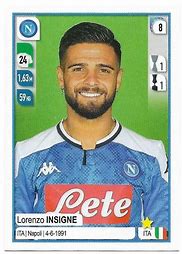 Swapping… shorts: The gifting of shirts after a match has long been a custom in football, but seeing a Y-front-clad Giovanni Di Lorenzo, who had ‘gifted’ his shorts to some lucky (?) recipient, after Italy’s win was a new one on me, although Jurgen Klinsmann reliably informed viewers that this was common practice in Italy… hmmm. A sweaty shirt given away is one thing, but shorts, really? At least with shirts, they have the name on the back and all of the added details that these days adorn the front – the fixture, date, inside-leg measurement – well, perhaps not the last one, but it seems to be going that way. But what do you get with shorts, apart from the number and team badge? What’s to say, in your dotage, you’ll even remember who was Italy’s number 2 at some point in the past? No, give me a shirt any day, thank you. Although that brings me to the whole shirt-swapping practice between players (look away now, Roy Keane). I’ve always wondered how this is negotiated. Does a player have his sights on an opposite number from the get-go? Are negotiations made before the match or is there an approach during or at half-time? Is there a mad rush to get the star’s shirt at the end of the match and it’s all down to a first-come first-served basis? Or does the shirt giver get to bestow his shirt on the lucky recipient? And what of the shirt giver, is he obliged to take the shirt of his opposite number even if he’s absolutely no inclination/knowledge of him? It’s surely pretty bad etiquette to refuse. I imagine Messi and Ronaldo must have quite the collection of random players’ shirts amassed somewhere. And what of the poor players who never get asked for their shirts – well, I guess they could always start giving away their shorts – or perhaps their socks if it comes to it.
Swapping… shorts: The gifting of shirts after a match has long been a custom in football, but seeing a Y-front-clad Giovanni Di Lorenzo, who had ‘gifted’ his shorts to some lucky (?) recipient, after Italy’s win was a new one on me, although Jurgen Klinsmann reliably informed viewers that this was common practice in Italy… hmmm. A sweaty shirt given away is one thing, but shorts, really? At least with shirts, they have the name on the back and all of the added details that these days adorn the front – the fixture, date, inside-leg measurement – well, perhaps not the last one, but it seems to be going that way. But what do you get with shorts, apart from the number and team badge? What’s to say, in your dotage, you’ll even remember who was Italy’s number 2 at some point in the past? No, give me a shirt any day, thank you. Although that brings me to the whole shirt-swapping practice between players (look away now, Roy Keane). I’ve always wondered how this is negotiated. Does a player have his sights on an opposite number from the get-go? Are negotiations made before the match or is there an approach during or at half-time? Is there a mad rush to get the star’s shirt at the end of the match and it’s all down to a first-come first-served basis? Or does the shirt giver get to bestow his shirt on the lucky recipient? And what of the shirt giver, is he obliged to take the shirt of his opposite number even if he’s absolutely no inclination/knowledge of him? It’s surely pretty bad etiquette to refuse. I imagine Messi and Ronaldo must have quite the collection of random players’ shirts amassed somewhere. And what of the poor players who never get asked for their shirts – well, I guess they could always start giving away their shorts – or perhaps their socks if it comes to it.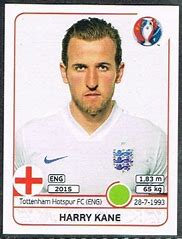 Golden Boot: Ronaldo may have bid farewell to Euro 2020, but with him he took a host of records, and there is surely one more accolade still in his sights, as he lies back on a beach somewhere, drinking water (not Coke) and taking in the conclusion of the tournament – Golden Boot. Whilst Patrick Schick levelled up with Ronaldo’s five goals, with his strike against Denmark in the Quarter-Finals, the Portuguese must have breathed a sigh of relief when not only Schick, but Lukaku and Forsberg who were hot on his heels in the Golden Boot race, all crashed out of the tournament. However, it’s not quite signed, sealed and delivered for Ronaldo yet, for, whilst he sits pretty at the top of the charts with Schick on five goals, Denmark’s Kasper Dolberg’s strike against the Czech Republic lifted him up to three goals, alongside Raheem Sterling. And, there’s another contender, making a late – but timely – dash for it – none other than Harry Kane. He who was being written off in many quarters after failing to score in the opening three matches has taken his tally up to three in just two games, with time yet to improve on that. There are a number of other players with two goals to their name left in the tournament, including Insigne and Immobile of Italy, Morata and Torres of Spain, and Maehle and Poulsen of Denmark. In what has already been a topsy-turvy tournament, nothing can be taken for granted, and whilst Ronaldo and Schick may each have one hand on the Golden Boot, don’t rule out an Englishman spoiling their party.
Golden Boot: Ronaldo may have bid farewell to Euro 2020, but with him he took a host of records, and there is surely one more accolade still in his sights, as he lies back on a beach somewhere, drinking water (not Coke) and taking in the conclusion of the tournament – Golden Boot. Whilst Patrick Schick levelled up with Ronaldo’s five goals, with his strike against Denmark in the Quarter-Finals, the Portuguese must have breathed a sigh of relief when not only Schick, but Lukaku and Forsberg who were hot on his heels in the Golden Boot race, all crashed out of the tournament. However, it’s not quite signed, sealed and delivered for Ronaldo yet, for, whilst he sits pretty at the top of the charts with Schick on five goals, Denmark’s Kasper Dolberg’s strike against the Czech Republic lifted him up to three goals, alongside Raheem Sterling. And, there’s another contender, making a late – but timely – dash for it – none other than Harry Kane. He who was being written off in many quarters after failing to score in the opening three matches has taken his tally up to three in just two games, with time yet to improve on that. There are a number of other players with two goals to their name left in the tournament, including Insigne and Immobile of Italy, Morata and Torres of Spain, and Maehle and Poulsen of Denmark. In what has already been a topsy-turvy tournament, nothing can be taken for granted, and whilst Ronaldo and Schick may each have one hand on the Golden Boot, don’t rule out an Englishman spoiling their party.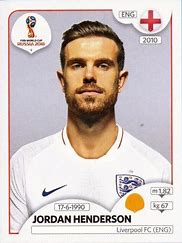 Three Lions: And, on that note, let’s turn to England and enjoy the moment – it doesn’t happen too often. After overcoming Germany, Ukraine were considered to be less of a challenge on paper, but, as any England fan knows, games aren’t won on paper – two words: Iceland, 2016. So, although hopes were raised going into the game, nobody was expecting an easy time of it, but in this craziest of times, we should have perhaps learned, if nothing else, to expect the unexpected, and in this case, the unexpected was one of the most comfortable victories in a knock-out stage in England’s history. After close contests with the Netherlands and Sweden, Ukraine shouldn’t have been a walkover, but I suspect that was as close to a walkover as is possible in tournament knock-out football. Admittedly, the early goal did England a lot of favours, and there was never really any danger from thereon out, as England scored four goals in a knockout stage for only the second time – the first, you ask? Some World Cup in 1966. Amongst the goal-scorers was Jordan Henderson who netted for the first time for his country in 62 appearances, taking perhaps the somewhat dubious honour of becoming the player with the longest wait for their first England goal – succeeding Sol Campbell (47 apps). Meanwhile, a fifth consecutive clean sheet in the tournament saw England progress to a total seven consecutive clean sheets for the first time ever – over 11 hours without conceding. And whilst the schooling of Ukraine was a collective effort, and a fairly routine one at that, Luke Shaw was amongst the most impressive performers, adding to his assists for the tournament and sitting joint second with Pierre-Emile Hojbjerg for three in the competition, with the departed Switzerland’s Zuber only one assist ahead. England certainly cruised into a Semi-Final return to Wembley against Denmark, with even the referee not wanting to prolong Ukraine’s agony, blowing up for full-time bang on 90 minutes before even the board denoting the additional minutes had been raised. Let’s hope it’s just as plain sailing through to the Final.
Three Lions: And, on that note, let’s turn to England and enjoy the moment – it doesn’t happen too often. After overcoming Germany, Ukraine were considered to be less of a challenge on paper, but, as any England fan knows, games aren’t won on paper – two words: Iceland, 2016. So, although hopes were raised going into the game, nobody was expecting an easy time of it, but in this craziest of times, we should have perhaps learned, if nothing else, to expect the unexpected, and in this case, the unexpected was one of the most comfortable victories in a knock-out stage in England’s history. After close contests with the Netherlands and Sweden, Ukraine shouldn’t have been a walkover, but I suspect that was as close to a walkover as is possible in tournament knock-out football. Admittedly, the early goal did England a lot of favours, and there was never really any danger from thereon out, as England scored four goals in a knockout stage for only the second time – the first, you ask? Some World Cup in 1966. Amongst the goal-scorers was Jordan Henderson who netted for the first time for his country in 62 appearances, taking perhaps the somewhat dubious honour of becoming the player with the longest wait for their first England goal – succeeding Sol Campbell (47 apps). Meanwhile, a fifth consecutive clean sheet in the tournament saw England progress to a total seven consecutive clean sheets for the first time ever – over 11 hours without conceding. And whilst the schooling of Ukraine was a collective effort, and a fairly routine one at that, Luke Shaw was amongst the most impressive performers, adding to his assists for the tournament and sitting joint second with Pierre-Emile Hojbjerg for three in the competition, with the departed Switzerland’s Zuber only one assist ahead. England certainly cruised into a Semi-Final return to Wembley against Denmark, with even the referee not wanting to prolong Ukraine’s agony, blowing up for full-time bang on 90 minutes before even the board denoting the additional minutes had been raised. Let’s hope it’s just as plain sailing through to the Final.
